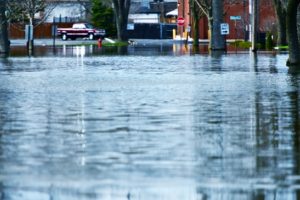Hurricane Insurance Lawyers In Jacksonville, Florida

Do you remember Hurricane Floyd? What about tropical storm Fay or Beryl? While we haven’t seen a significant storm hit Jacksonville in the past few years, we have seen some close calls placing hurricane insurance at the top of the priority list. The aforementioned storms created millions of dollars in damage for homeowners and businesses in the Jacksonville area.
All too often, hurricane insurance lawyers in Jacksonville take on cases where homeowners are not getting fair compensation for their claims. We hope you never have to go through a storm like that, but the truth is, it’s possible and you should be prepared.
What To Know About Getting Hurricane Insurance
There are mixed reactions from homeowners about whether or not they like their hurricane coverage and it typically depends on how significant the claim is. According to a poll done with Consumer Reports, those who had small claims of $20-thousand or less were pretty content with their settlements. The results differ, however, as soon as the claims breached that $20K benchmark. Homeowners reported that they saw smaller settlement offers and flat out claim denials.
At David Graham Insurance Lawyers, P.A., we believe in being prepared, and as Jacksonville hurricane insurance attorneys we have some thoughts on how to identify the right kind of coverage. Here are some things to consider when shopping for Hurricane insurance and the things you need to consider well before a significant storm heads towards Jacksonville.
The Truth – Hurricane Insurance Doesn’t Really Exist
Sounds crazy considering you hear about “hurricane insurance” all the time, but the reality is that no “one” coverage can save you from everything a hurricane can dish out. In reality, a homeowner really needs different policies to cover the types of damage they can withstand in a storm. This will include:
- Home Insurance – These are standard policies that most homeowners around the country have, to cover things like fire and storm damage. These policies can help hurricane victims as well, but will not be “total” coverage.
- Wind Insurance – Separate wind insurance policies are popular among hurricane-prone geographic areas and can help fill the voids in basic home insurance policies.
- Flood Insurance – As with wind insurance, flood insurance can significantly help a homeowner that was the victim of a flood when their regular policy falls short.
Some of these coverages are “required” for specific locations throughout Florida so check with your local and state government regulations to see where your home may fit into that equation. There are also “rider” policies that can cover things like missing shingles, tree damage, and window shatter.
Get To Know Your Policy
Now is the time (before a pending hurricane) to get to know your policy so you can start filling in the gaps. Read through the plan and begin to get a better sense of what is covered and what isn’t. Does your insurance financially cover the value of the contents of your home? You’ll also want to be on the lookout for delineations that can bite you on the back end of a storm. For example, you might have flood coverage, but what kind? What exactly does it cover? It might cover rising water in your home but may reveal that if the creek nearby floods, you aren’t covered.
If you are not covered for anything but “seeping groundwater” it’s time to either find a new policy or look for a rider or secondary policy for flooding. This should be comprehensive since flood damage is typically the worst part of a hurricane and often the most damaging and costly.
When homeowners find out that the flooding from storm surge isn’t covered, they are usually incredibly upset despite that it was in their policy. Don’t allow that to take you by surprise.
The Kind of Deductibles Involved
As hurricane insurance lawyers in Jacksonville, we see far too often, insurers escaping having to pay storm victims their full compensation because of outrageous deductibles. These are usually done in percentage points, rather than dollar amounts. On paper, they don’t seem so bad but when your deductible is 5% of your $235,000 home, this will leave you having to pay $11,750 out of pocket.
Also, be alert to what many insurers refer to as a “trigger” event. This can be found on your declarations pages and will establish that the insurer only pays when damage comes from a validated “trigger.” This usually means that the National Weather Center issued an actual weather advisory of “hurricane” or “tropical storm.”
After a Storm
If you return to your home and there is damage, try to stay as calm as possible and start documenting the aftermath. Take pictures and videos and try to preserve as much as you can at the scene to prevent more damage. For example, seal doors, tape windows, use tarps to prevent more leaking and remove things that could cause hazardous conditions in your home.
You’ll want to be sure to hold on to any receipts and estimates that you get for the damage as you move through this process as well.
Hurricane insurance law firms in Jacksonville would agree that once you asses the damage, your next task is to contact your insurance agent or company. They will give you information about what steps need to happen next and how to start a claims process.
If you run into any issues, you can contact your Jacksonville hurricane insurance claim lawyer to help you negotiate, if the company has become unresponsive or has flat out denied your claim. David Graham Insurance Lawyers, P.A. can work to get the insurance company responding again, so you can start to rebuild your life.


